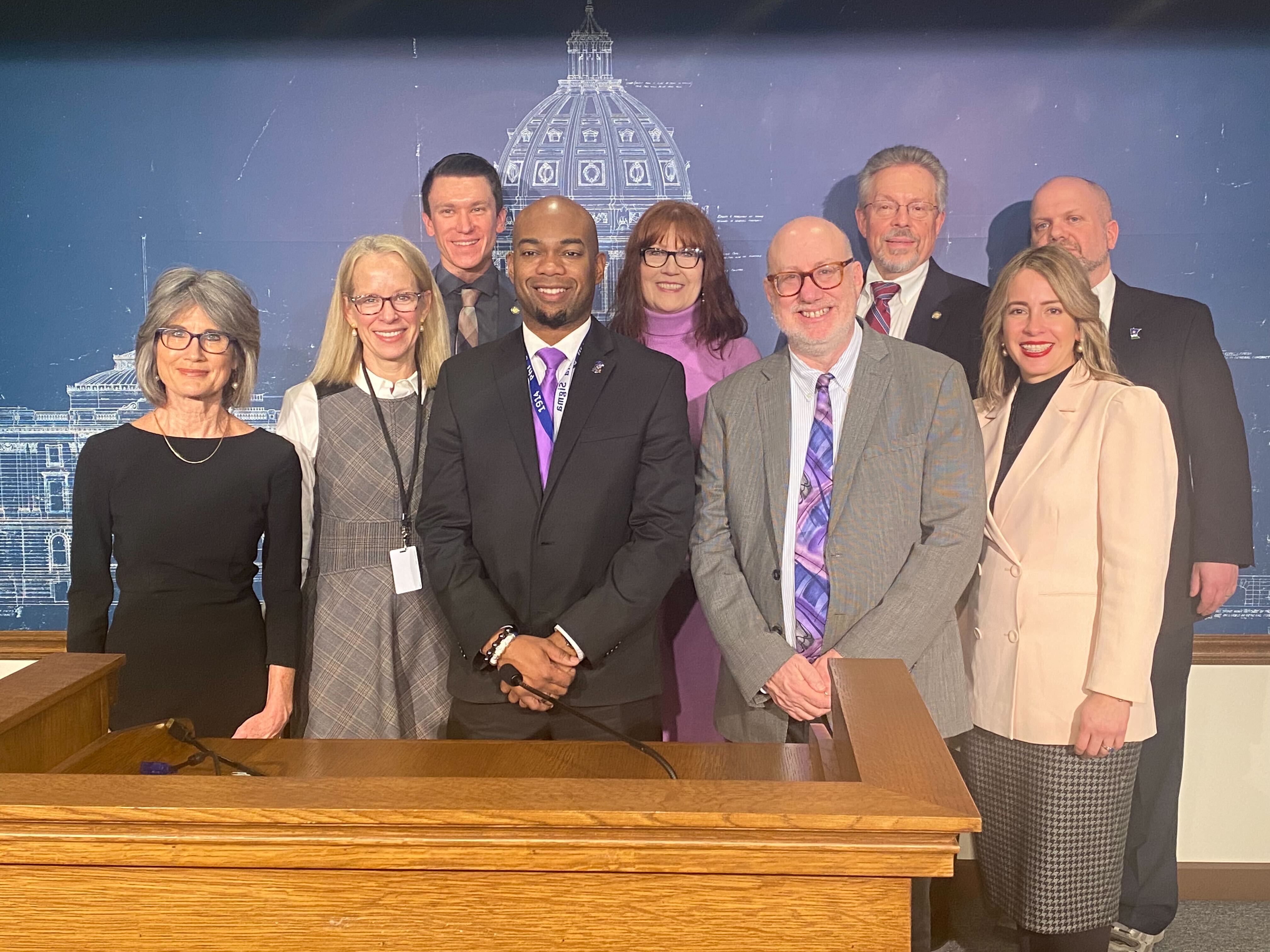St. Paul (March 2, 2023) –– Today, Representative Cedrick Frazier and Senator Kelly Morrison introduced the Protect and Advance Democracy Act, a bill that brings Ranked Choice Voting statewide, in the Minnesota House and Senate, SF 2270. To explain the bill, the chief authors and cosponsors held a media briefing.
The future of democracy was a top concern for Minnesota voters in 2022. With political divisions and extremism on the rise, Minnesotans stated clearly and consistently that they were fearful about the state of our democracy and wanted action to protect and strengthen it. Leading democracy reform advocates in the Minnesota House and Senate led by Rep. Frazier and Sen. Morrison, have offered a proven and achievable solution, Ranked Choice Voting, cited by experts as one of the top reforms to strengthen our democracy.
Ranked Choice Voting (RCV) is a simple, proven change that empowers voters to rank candidates in order of preference and ensures candidates earn majority support to win. Used by more than 60 jurisdictions across the country, including five cities in Minnesota as well as the states of Maine and Alaska, momentum for Ranked Choice Voting continues to grow. Last fall, Nevada voters approved bringing RCV statewide, the first step in a two-year process for voter-initiated ballot measures, and even more jurisdictions will be using the system in 2023.
The bill, called the Protect and Advance Democracy Act:
Enacts Ranked Choice Voting in primary and general elections for state and federal offices beginning in 2026;
Gives local jurisdictions the immediate option to adopt RCV for local elections if they wish;
Provides grants to local jurisdictions for implementation and voter education;
Establishes a statewide RCV implementation task force to develop standards and procedures for implementing RCV statewide and provides an appropriation.
“We are at a critical moment in our democracy,” explained FairVote Minnesota Executive Director Jeanne Massey, “and Ranked Choice Voting is the best step we can take to reduce extremism and heal our political divisions. It encourages candidates to build broad majority coalitions to win and gives voters greater voice, choice and power.”
Highlighting a just-released poll by Expedition Strategies, she shared that Minnesota voters are ready for this reform, with 64 percent of voters across the state indicating support for RCV for state and federal elections when educated about the benefits.
Sen. Morrison, chief author of the bill in the Senate, underscored the urgent need for reform: “When I talk to voters in my purple district, they are concerned about how toxic politics and division are damaging our democracy. For years, it has impacted our ability to problem-solve and address issues, even issues that are broadly popular, because of the dysfunction and gridlock in our government.” She explained, “In ranked-choice elections, candidates must appeal to their opponent's supporters for second and third-choice votes, and they do that by running positive campaigns that focus on policy solutions rather than personal attacks. That’s exactly the antidote we need to nurture and heal our democracy.”
Rep. Cedrick Frazier, chief author in the House, also spoke to the urgency and benefits of the reform. He declared, “In order to have a multi-racial democracy that includes everyone, we need more inclusive and representative elections. Ranked Choice Voting means everyone gets a voice — and it means elected officials have to listen to those voices.”
Former Senate Leader and current FairVote Minnesota Board member, Melisa Lopez Franzen, explained, “RCV encourages candidates to reach out to a broader range of voters, and once in office, they’re more likely to be responsive to that broader electorate, tackle the important issues and get things done, which is exactly what Minnesota voters want and should expect.” She added, “It allows voters to fully express their choices, and eliminates problems like spoilers and wasted votes, giving them more power at the ballot box.”
RCV is a tried and tested election reform in our state. Voters in some of Minnesota’s largest cities have more than a decade of experience using RCV in local elections; and they report that RCV is simple to use, and they like it and want to keep using it. These views are consistent with what other voters have reported across the country, from New York City to Utah to Alaska. As the most recent state to use RCV, Alaska showed its ability to reduce division and open up elections to new voices with the election of Rep. Mary Peltola, the first Alaska Native and first woman to represent the state of Alaska in the U.S. House.
Minnesota with its history of pro-voter reforms, top-in-the-nation turnout, and local experience with RCV is well-positioned to lead on this reform and become the first state in the nation to bring RCV statewide through legislative action.
Voters who want to help pass the Protect and Advance Democracy Act can find out more at fairvote mn.org.
Please contact Jeanne Massey for information about the legislation or Ranked Choice Voting efforts in Minnesota.
 Photo Cutline: Senator Morrison and Representative Frazier with Ranked Choice Voting advocates
Photo Cutline: Senator Morrison and Representative Frazier with Ranked Choice Voting advocates